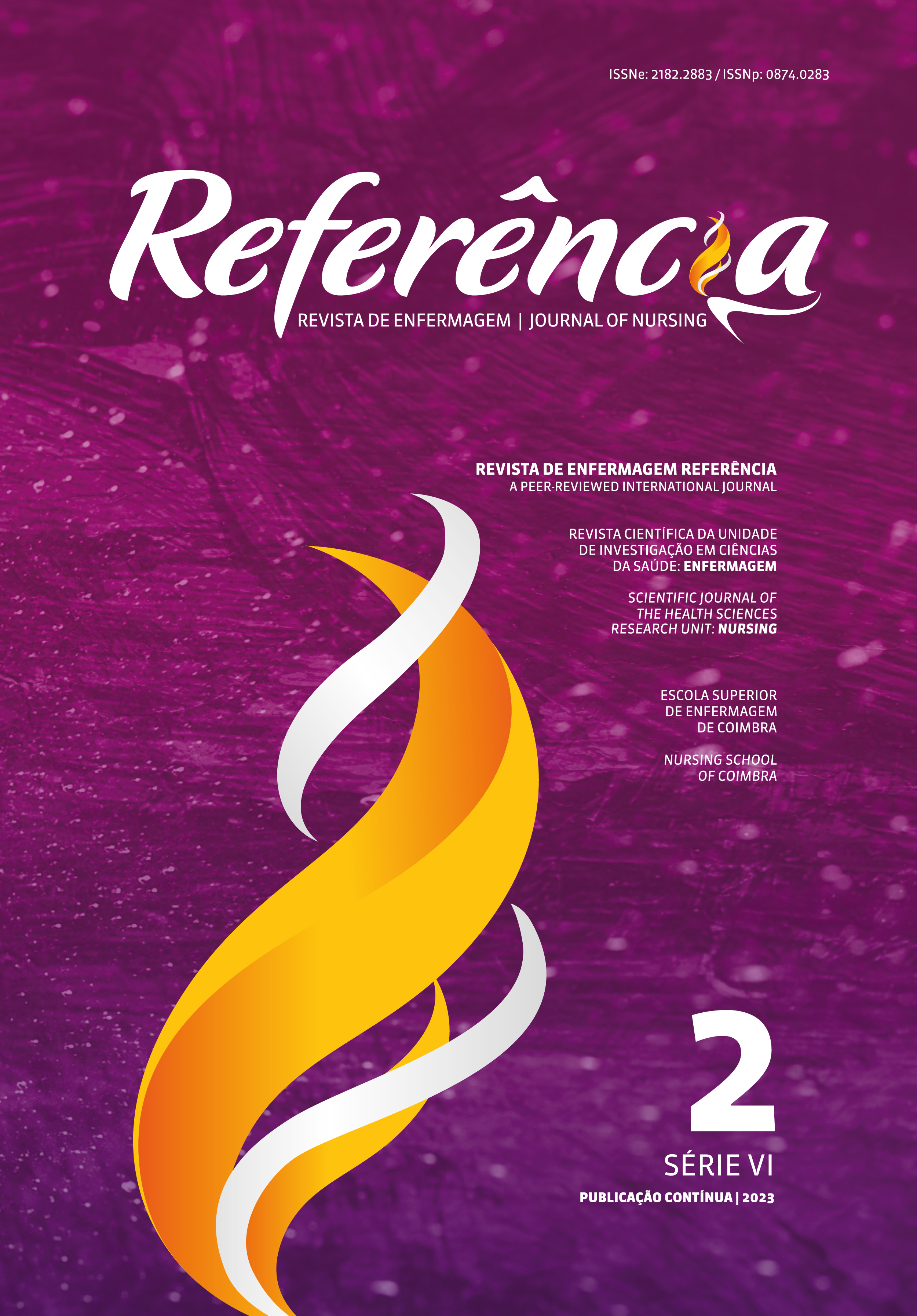The dependent person, the family caregiver, and the resources used: A study with standard families
DOI:
https://doi.org/10.12707/RVI22071Keywords:
ageing, family nurse, dependency, self-care, caregiverAbstract
Background: Demographic aging and the increase in chronic diseases are reflected in high levels of dependence for self-care.
Objective: To characterize the Dependent Family member (FM), the Caregiving Family Member (CFM) and the resources used, in the context of classic families.
Methodology: Quantitative and descriptive study. A Snowball sample was used. The “Families that Integrate Dependents in Self-care” form was used in 60 CFM..
Results: The FM are mostly female. Caregivers are predominantly elderly women with low education.
The most basic care (e.g. feeding, giving drink and dressing are carried out with some ease by the CFM and are guaranteed. Care with a more differentiated intervention, such as performing exercises for the lower and upper limbs and activities to stimulate memory, do not are carried out. The main resource used is the health center.
Conclusion: This study reveals the need for Family Nurses to intervene in family care at home through teaching and implementing more differentiated care (motor rehabilitation and cognitive stimulation), as well as promoting accessibility to care and health resources.
Downloads
References
Amaral, A., Bento, M. C., & Silva A. (2021). Idosos a cuidar de idosos: Um desafio à organização dos cuidados domiciliários. Cogitare Enfermagem, 26, e79093. https://doi.org/10.5380/ce.v26i0.79093
Chen, S., Zheng, J., Chen, C., Xing, Y., Cui, Y., Ding, Y., & Li, X. (2018). Unmet needs of activities of daily living among a community-based sample of disabled elderly people in Eastern China: A cross-sectional study. BMC Geriatrics, 18(1), 160. https://doi.org/10.1186/s12877-018-0856-6
Costa, A. (2013). Famílias que integram pessoas dependentes no autocuidado: Estudo exploratório de base populacional no conselho de Lisboa [Tese de doutoramento, Universidade Católica Portuguesa]. Repositório Institucional da Universidade Católica Portuguesa. https://repositorio.ucp.pt/bitstream/10400.14/13420/3/Tese%20Doutoramento%20V10%20-18%20Maio%202013_CD.pdf
Direção-Geral da Saúde. (2017). Estratégia nacional para o envelhecimento ativo e saudável 2017-2025. https://www.sns.gov.pt/wp-content/uploads/2017/07/ENEAS.pdf
Dixe, M. A., & Querido, A. I. (2020). Cuidador informal de pessoa dependente no autocuidado: Fatores de sobrecarga. Revista de En Referência, 5(3), 1-8. https://doi.org.10.12707/RV20013
Dixe, M. A., Frontini, R., Sousa, P., Peralta, T., Teixeira, L., & Querido, A. (2019). Dependent person in self-care: Analysis of care needs. Scandinavian Journal of Caring Sciences, 34(3), 727-735. https://doi.org.10.1111/scs.12777
Gonçalves, P. (2015). Famílias que integram pessoas dependentes no autocuidado: Estudo exploratório de base populacional no concelho do Porto [Tese de doutoramento, Universidade Católica Portuguesa]. Repositório Institucional da Universidade Católica Portuguesa. http://hdl.handle.net/10400.14/18580
Instituto Nacional de Estatística. (2022). Projeções de população residente 2015-2080. https://www.ine.pt/xportal/xmain?xpid=INE&xpgid=ine_destaques&DESTAQUESdest_boui=277695619&DESTAQUESmodo=2
Logan, W., Roper, N., & Tierney, A. (2000). Roper-Logan-Tierney model of nursing. Elsevier Health Sciences.
Melo, R., Rua, M., & Santos, C. (2018). Apoio e capacitação dos cuidadores familiares: Programa de intervenção de enfermagem. Millenium, 2(5), 73-80. http://hdl.handle.net/10400.26/33429
Nicolau, A. (2018). O cuidador informal: Estratégias vividas pelo cuidador informal da pessoa idosa dependente [Dissertação de mestrado, Instituto Universitário de Lisboa]. Repositório Institucional do Instituto Universitário de Lisboa. https://repositorio.iscte-iul.pt/handle/10071/17139
Petronilho, F., Pereira, F., & Silva, A. (2015). Perceção de autoeficácia do familiar cuidador após o regresso a casa do dependente: Estudo longitudinal. Revista Portuguesa de Enfermagem de Saúde Mental, 2(esp.), 9-13. https://comum.rcaap.pt/bitstream/10400.26/36490/1/F.Pereira-07.pdf
Machado, P., Pereira, S., & Martins, T. (2020). Avaliação da dependência no autocuidado: Estudo exploratório do fenómeno em contexto comunitário. Suplemento Digital Revista ROL de Enfermería, 43(1), 486-492. https://e-rol.es/wp-content/uploads/2020/01/Avaliacao-da-dependencia-no-autocuidado.pdf
Santos-Orlandi A., Brito T., Ottaviani A., Rossetti E., Zazzetta M., & Pavarini I. (2017). Elderly who take care of elderly: A study on the frailty syndrome. Revista Brasileira de Enfermagem, 70(7), 822-829. https://doi.org.10.1590/0034-7167-2016-0474
Sequeira, C. (2018). Cuidar de idosos com dependência física e mental (2ª ed.). Lidel.
Shajani, Z., & Snell, D. (2019). Wright & Leahey’s nurses and families: A guide to family assessment and intervention (7ª ed.). F. A. Davis Company.
Silva, R. C., Bobrowicz-Campos, E. M., Santos-Costa, P. J., Gil, I. M., Almeida, M. L., & Apóstolo, J. L. (2021). Making a difference 3: An individual cognitive stimulation program for older people: Appropriateness and feasibility. Revista de Enfermagem Referência, 5(8), e20161. https://doi.org.10.12707/RV20161
Stojak, Z., Jamiolkowski, J., Chlabicz, S., & Marcinowicz, L. (2019). Levels of satisfaction, workload stress and support amongst informal caregivers of patients receiving or not receiving long-term home nursing care in Poland: A cross-sectional study. International Journal of Environmental Research and Public Health, 16(7), 10–18. https://doi.org.10.3390/ijerph16071189
Wang, X.-X., Lin, W.-Q., Chen, X.-J., Lin, Y.-Y., Huang, L.-L., Zhang, S.-C., & Wang, P.-X. (2017). Multimorbidity associated with functional independence among community-dwelling older people: A cross-sectional study in Southern China. Health and Quality of Life Outcomes, 15(1), 73. https://doi.org.10.1186/s12955-017-0635-7






















